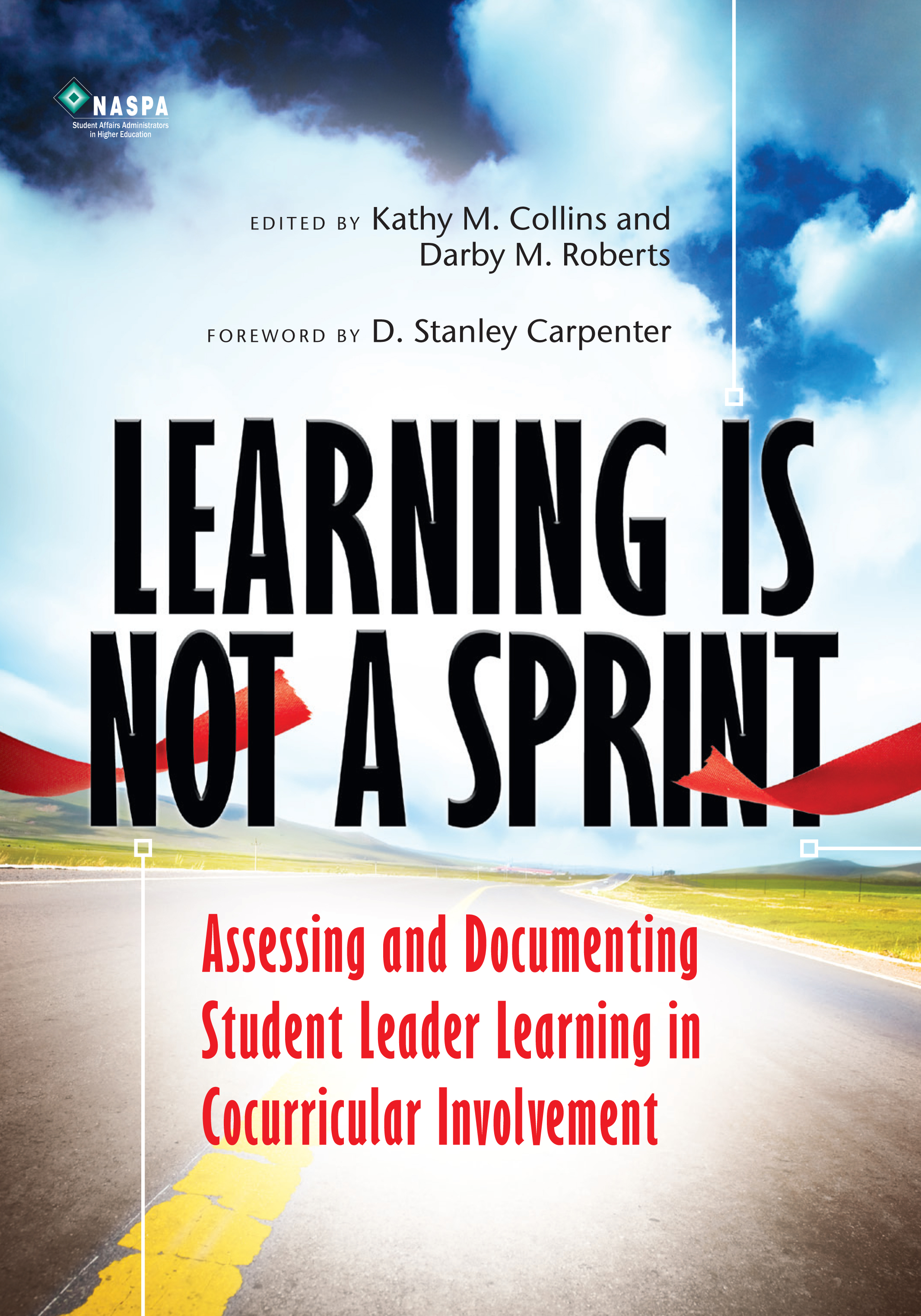
Learning Is Not A Sprint: Assessing and Documenting Student Leader Learning in Cocurricular Involvem
Student Success Assessment, Evaluation, and Research
August 20, 2013
Student affairs professionals are increasingly being asked to provide evidence that students are learning and growing through their experiences on campus. Stakeholders such as accrediting agencies, legislators, families, employers, faculty, and students all have opinions about what individuals should be learning in college. Students learn in all contexts, from resolving roommate conflicts, to managing a complex student organization budget, to making a persuasive speech in front of the student government. The task of assessing and documenting student learning outside the traditional classroom presents a unique set of challenges: there are no grades given at the end of an experience, the skills developed may not fit into one academic area, and there are no national standards or summative curriculum.
Learning is Not a Sprint: Assessing and Documenting Student Leader Learning in Cocurricular Involvement offers multiple perspectives and a framework to establish and document student learning in the cocurricular environment, with a specific focus on student leaders and student employees. It provides student affairs professionals with a theory base on student learning and student leadership, but also addresses the realities of the current state of higher education.
Written primarily for student affairs administrators with responsibility for advising and supervising undergraduate student leaders and student employees, this book provides readers with:
- an understanding of the importance of student learning in the cocurricular environment;
- models of student leadership, learning, and development;
- tools to assess and document student learning;
- advising theories and strategies;
- implementation and training strategies;
- methods for assessing programs and individuals;
- potential challenges to address for program success; and
- opportunities to think about the future of cocurricular student leader learning.
The authors, who represent various levels of administration, share real-life examples that showcase what institutions are currently doing across the country to foster a culture of learning on their campuses. Each chapter contains questions for reflection and discussion to help readers quickly apply the knowledge they have gained and to stimulate further thought or action.
Student affairs educators must be willing to make the time to conduct assessments on their programs and training. By focusing assessment efforts on the mission of the institution, student affairs professionals will be well-situated to partner with faculty to support their students’ academic journey.
Praise for Learning is Not a Sprint
“Learning is Not a Sprint is an excellent, comprehensive resource for educators of student leaders in any unit—not just leadership development offices. The authors lead the reader through the stages of the assessment process while focusing on the issues specific to educating student leaders. It is a must-read for practitioners working with student leaders in any setting.” —Carrie L. Zelna, director of student affairs planning, assessment, research, and retention, North Carolina State University
“This book is a perfect combination of scholarly information and practical solutions for both routine and unique day-to-day situations that student affairs professionals experience throughout the lifecycle of their careers. As student affairs professionals continue working to enhance student leadership, the book reinforces and brings to life the intentional efforts needed for successful cocurricular involvement programs. The diversity of authors clearly provides the opportunity for a range of readers to gain valuable insight into student leadership.” —Rodney Altemose, executive director, Bucks County Community College–Upper Bucks Campus
“Readers will find that this book takes a new approach to articulating the substantive contributions of student affairs to the university learning environment. The authors refocus and reframe our commitment to intentional learning by addressing emerging issues, demystifying the process of assessing student involvement, and recommending ways to advance a new comprehension of the experiential component of college.” —Erin Bentrim-Tapio, director of student affairs assessment, The University of North Carolina at Greensboro
Hardcover | 2012 | 216 pages
ISBN 978-0-931654-99-2